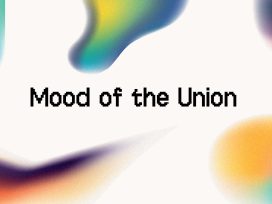Post-revolutionary Ukrainian society displays a unique mix of hope, enthusiasm, social creativity, collective trauma of war, radicalism and disillusionment. With the Maidan becoming history, the focal point ‘Ukraine in European Dialogue’ explores the new challenges facing the young democracy, its place in Europe, and the lessons it might offer for the future of the European project.
This focal point stems from the project ‘Ukraine in European Dialogue’ at the Institute for Human Sciences (IWM) in Vienna. The focal point is edited by Mariia Shynkarenko at the IWM. From 2018 to 2024, it was edited by Katherine Younger, and from 2016 to 2018 by Tatiana Zhurzhenko. Further texts have been contributed by journals in the Eurozine network.

In collaboration with
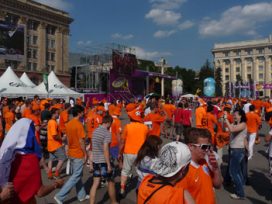
On 6 April 2016 in the Netherlands, a referendum will be held on the Ukraine-European Union Association Agreement – the first since the enactment of the Dutch Advisory Referendum Act from 1 July 2015. More than 427,000 requests were received, significantly more than the 300,000 required. To be valid, a turnout of at least 30 per cent of eligible voters is required, of which a simple majority defines the result. The referendum’s outcome is not binding for the government, but if negative, will have a strong symbolic impact on the rest of the European Union, and further alienate Ukraine from Europe. Zaven Babloyan, a publisher and translator from Kharkiv (Ukraine), reflects on political misunderstandings, a lack of solidarity and literature as the last hope.
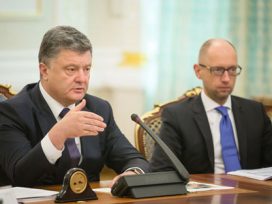
Reforms in Ukraine
Between old legacies and a new social contract
With president Petro Poroshenko and prime minister Arseniy Yatseniuk having lost their image as radical reformers of late, Iryna Solonenko says it is up to Ukraine’s new reform-minded actors in both government and civil society to secure a new social contract. However, the challenges they face are formidable, as the legacies of previous regimes persist and resistance to change among the old guard remains fierce.
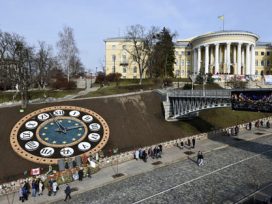
Back to the future in Ukraine
Cultural policies two years after Maidan
The Maidan protests have given Ukraine a chance to stop and look at its future, and plan it the way she wanted to, writes Kateryna Botanova. Now it’s becoming apparent how to make the revolutionary shift from continual fighting, distrust and questioning of legitimacy to mutual support, collaboration and growth.

Today’s mass-produced Russian science fiction is brimming with motifs of imperial revenge, the “rewriting of history” and a cult of military aggression. Moreover, writes Konstantin Skorkin, the imperial visions of science fiction authors have turned into a guide to action.
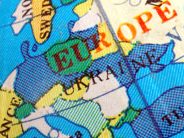
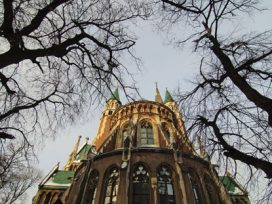
When Pope Francis and Patriarch Kirill met in Havana, for one part of the Catholic Church the past seemed to be repeating itself, writes Katherine Younger. In the nineteenth century, the Ukrainian Greek Catholic Church found itself in the middle of both diplomatic negotiations and ideological clashes between the Vatican and Russia – and it is again today.
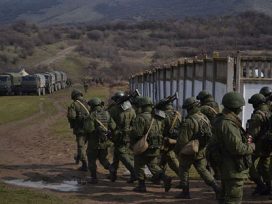
From peninsula to island
Crimea two years after annexation
Though Russia’s annexation of Crimea in March 2014 moved at breakneck pace, it followed a long anti-Ukrainian propaganda campaign. Katerina Sergatskova describes the growing mutual alienation between the inhabitants of the peninsula and mainland Ukraine.
A litmus test for post-Maidan democracy
Anti-discrimination legislation
The political discourse on LGBT rights has shifted in Ukraine after the Maidan and as a result of the conflict with Russia, which aggressively promotes “traditional values”. However, writes Maria Teteriuk, the efficacy of recent legal reform concerning LGBT rights, introduced as part of the visa-free deal with the EU, remains to be seen.
Patterns of illiberalism in central Europe
A conversation with Anton Shekhovtsov
Poland’s turn to the right has refocused attention on the roots of the region’s illiberal democracies. Anton Shekhovtsov considers the implications of these developments for Europe as a whole.
Ukraine’s Revolution of Dignity was triggered by the government’s decision to postpone signing the long-awaited Association Agreement with the European Union. Protesters on Kyiv’s streets chanted “Ukraine is Europe!”, and waved EU and Ukrainian flags side-by-side. Two years after the victory of the Maidan protests, what is left of this pro-European idealism? Ukrainian journalist and essayist Mikhail Dubinyansky takes stock.
Diaries and memoirs of the Maidan
Ukraine from November 2013 to February 2014
In these impressions of the Maidan protests collected by Timothy Snyder and Tatiana Zhurzhenko, one hears the voices of those who witnessed history in the making. The role of civil society and the Russian-speaking middle class, as well as individual existential decisions, also come to the fore.

